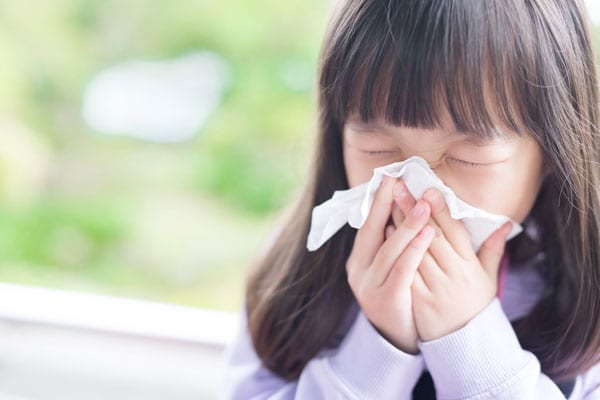Are you sniffling, sneezing, wheezing and coughing? You may be wondering if you have a common cold or suffering from allergies. The problem is, it’s not always easy to tell the two apart. The symptoms can be the same, but the treatments, not so much. So let’s take a look at each, see how they differ, and how to treat them.
The Common Cold
A cold is an infection caused by a virus, usually in the upper respiratory tract affecting the nose, throat and/or sinuses. Symptoms may appear less than two days after exposure and include coughing, sore throat, runny nose, sneezing, headache, and possible fever. A cold will usually develop over several days and takes a couple days to clear up.
While there is no vaccine or cure for the cold, there are ways to help prevent it, the most common being hand washing. While antibiotics will not help with a cold, nonsteroidal anti-inflammatory drugs such as ibuprofen can help with discomfort. You also need to stay hydrated and rested.
Allergies
Allergies are your immune system’s reaction to things like pollen, grass, pet dander and foods like peanuts. An allergic reaction usually triggers symptoms in the nose, lungs, throat, sinuses, ears, and on the skin. In the most serious cases, a life-threatening reaction called anaphylaxis can occur.
Because allergies and colds have similar symptoms, like sniffles and stuffiness, many people get them confused. But, there are additional symptoms with allergies like red eyes, an itchy rash, shortness of breath, or swelling. But unlike a cold, which develops over time, allergies begin shortly after you’re exposed to what you’re allergic to. When it comes to the duration, allergies will last as long as you’re exposed. More than likely, if you’ve been experiencing symptoms for more than two weeks, it’s allergies.
So, what if you don’t know what you’re allergic to, but you have symptoms? How can you tell a common cold from allergies? Take a look at the list below and decide how many of the symptoms you have.
-
- Clear or watery mucus
- Itchy skin or watery eyes
- Unchanging symptoms
- Sniffles for more than a week
- Symptoms only during certain situations
If you’ve been experiencing symptoms like these, all hope is not lost. There are multiple kinds of allergies, and treatments vary for each. Treatments include avoidance, medications and allergy injections.
If you want relief from your allergies, or to find out what you’re allergic to, schedule an appointment with a board-certified allergist.
Sources:




